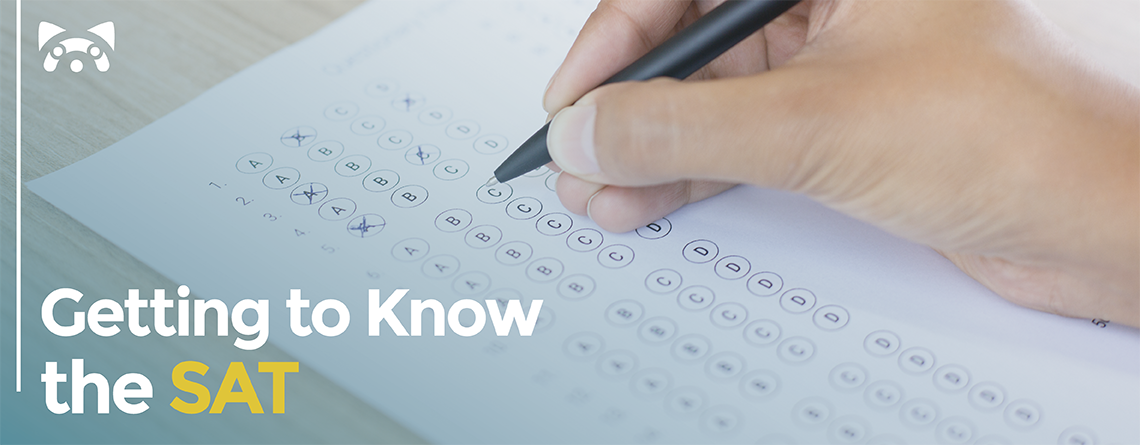Hi! No, that doesn’t sound right. How’s it going? No, that’s not right either.
Introductions can be tricky, especially when you’re being introduced to one of the most important exams you will ever take. That being said, let’s meet the SAT, and learn more about it.
As of March 2016, the SAT got a new look. The test is now made up of two sections, as opposed to the previous SAT, which had three sections. These two sections are labeled Mathematics, and Evidence-Based Reading and Writing.
If you ask your parents, they’re probably more used to this 1600-point layout from their college days, as opposed to the 2400-point system that was created in 2005. The SAT will consume exactly 3 hours and 50 minutes of a day.
Tests are offered only 7 times a year, so you have to plan ahead to find a time that works best for you.
The SAT was first created in 1926 in order to develop a universal measurement for students who were applying to colleges. As going to college became more of a norm, there became a need to a find measurement outside a grade point average (GPA) to test students’ academic performance.
This was due to the varying levels of difficulty of courses at schools across the country and around the world. With the help of the SAT, admissions counselors could test all students on the same material.
Since that time, colleges and universities have either required or strongly recommended students to send in their SAT scores as part of their application material.
One of the best ways to prepare for the SAT is to take the Preliminary SAT, or the PSAT — the younger sibling, so to speak, of the SAT. This test is shorter than the SAT, but will ask similar questions that are comparably difficult to the ones you will find on the SAT.
Prior to even taking the PSAT, students typically will begin to talk with guidance counselors, friends and family about the best study practices and when to begin the studying process. The SAT is not the type of test for which cramming the night before will be effective (not that any test is!).
While there are hundreds of different approaches to the SAT, one of the most important strategies is to spend time getting to know the exam. First impressions are important, so make sure that when you’re getting to know the SAT, you pay attention to the types of sections on the test and the types of questions that may be asked.
These sections and questions may be set up or phrased differently than you are accustomed. By taking a broad study approach, you will realize that the SAT isn’t as scary as people make it out to be.
Likewise, by studying how the test is set up, you will have a better idea of how to approach the test and what areas you should spend most of your time studying.



